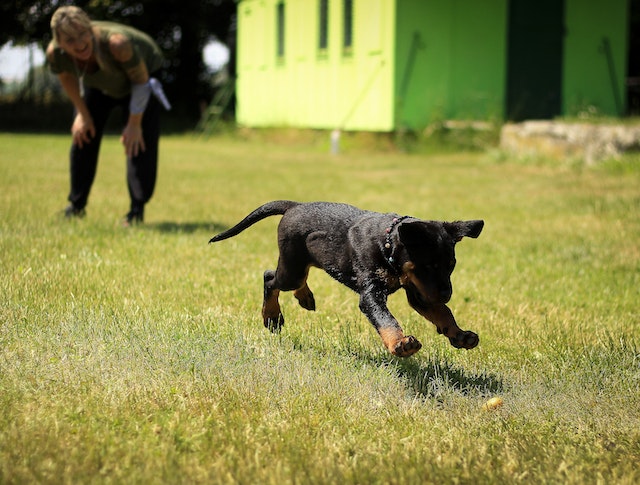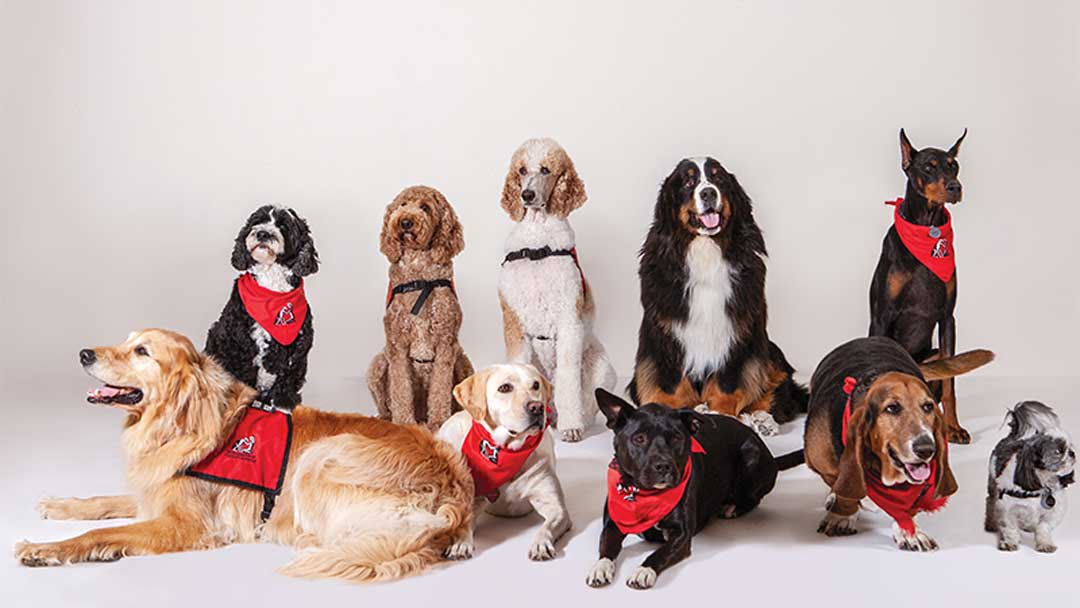- Q1: What inspired you to become a Psychiatric Service Dog trainer?
- Q2: What are the key qualities a successful PSD trainer should possess?
- Q3: Can you share a memorable success story from your experience as a PSD trainer?
- Q4: What are some of the challenges you face in training PSDs?
- Q5: How do you ensure that the bond between the handler and the PSD is strong and mutually beneficial?
- Q6: What advice do you have for individuals considering getting a Psychiatric Service Dog?
- Q7: How can we break down the stigma surrounding mental health and PSDs?
- Q8: What role do you see PSDs playing in the future of mental health support?

Introduction: Psychiatric Service Dogs (PSDs) are highly trained companions that offer invaluable assistance and support to individuals with psychiatric disabilities. To gain a deeper understanding of the training process, the impact of PSDs, and the challenges faced by trainers and handlers, we reached out to a panel of expert PSD training professionals. In this Q&A session, they share their insights, experiences, and advice on the world of psychiatric service dog training.
Q1: What inspired you to become a Psychiatric Service Dog trainer?
-
Expert 1 (E1): Personally witnessing the life-changing impact a PSD had on a close friend sparked my passion for this field. I saw how the dog's presence transformed their life and enabled them to live more independently and confidently.
- Expert 2 (E2): My background in mental health and a deep love for dogs converged, leading me to explore ways to combine the two. Becoming a PSD trainer felt like a natural fit where I could help individuals improve their mental health through the power of these amazing animals.
Q2: What are the key qualities a successful PSD trainer should possess?
-
E1: Patience and adaptability are essential traits. Each dog and handler have unique needs, and a trainer must be able to tailor their approach accordingly. Empathy and understanding of mental health challenges are also crucial in building rapport with the handlers.
- E2: A successful trainer should be knowledgeable in canine behavior, positive reinforcement training methods, and the specific tasks required for various psychiatric disabilities. Additionally, effective communication and collaboration skills are vital when working with clients and other professionals.
-
E1: One of my memorable success stories involves a handler with severe social anxiety. With the help of their PSD, they were able to attend a social event they had been avoiding for years. The dog provided the much-needed comfort and grounding, and the handler later expressed how this experience was a turning point in their life.
- E2: I worked with a handler who struggled with PTSD and had become increasingly isolated. Their PSD was trained to interrupt anxiety-inducing behaviors and provide comfort during flashbacks. Witnessing the transformation in the handler's daily life, where they started going out more and engaging with others, was incredibly rewarding.
Q4: What are some of the challenges you face in training PSDs?
-
E1: One challenge is managing the expectations of handlers. While PSDs provide remarkable support, they are not a cure-all solution. Helping handlers understand the boundaries and limitations of the dog's abilities is crucial.
- E2: Finding suitable dogs to become PSD candidates can be challenging, especially with the specific traits required for this role. Additionally, training dogs for public access and handling various real-life situations can be complex and time-consuming.
Q5: How do you ensure that the bond between the handler and the PSD is strong and mutually beneficial?
-
E1: Building a strong bond starts during the selection process. I involve handlers in the training process from the beginning, creating opportunities for them to bond with the dog. Encouraging handlers to actively participate in training reinforces the connection and strengthens their role as a team.
- E2: Consistent positive reinforcement training helps foster a strong bond based on trust and cooperation. I encourage handlers to spend quality time with their PSD outside of training sessions, engaging in activities that both enjoy.
Q6: What advice do you have for individuals considering getting a Psychiatric Service Dog?
-
E1: Thoroughly research the responsibilities and commitments involved in having a PSD. It's essential to understand the ongoing training and care required to maintain a successful partnership. Seek guidance from experienced trainers and connect with other PSD handlers for support.
- E2: Be honest about your needs and limitations. A PSD is a valuable tool, but it's essential to have realistic expectations. Embrace the training process and remember that the bond with your PSD will grow stronger over time.
Q7: How can we break down the stigma surrounding mental health and PSDs?
-
E1: Education and awareness are powerful tools in breaking down stigma. Sharing personal stories of how PSDs have positively impacted lives can help challenge misconceptions and promote understanding.
- E2: Promote respectful and positive interactions with PSDs in public spaces. Educate the public about the rights of service dog handlers and encourage empathy and compassion towards individuals with mental health challenges.
Q8: What role do you see PSDs playing in the future of mental health support?
-
E1: I believe PSDs will continue to gain recognition as an effective form of mental health support. As more success stories are shared, the demand for PSDs will grow, leading to increased accessibility and understanding.
- E2: The bond between PSDs and their handlers is unique and unparalleled. As mental health awareness continues to rise, PSDs will be increasingly recognized as powerful allies in the journey of mental health support.
Conclusion: The insights shared by our expert panel shed light on the incredible impact of Psychiatric Service Dogs in improving the lives of individuals with psychiatric disabilities. Their experiences highlight the significance of the human-animal bond, the importance of education in breaking stigma, and the ongoing commitment required from both handlers and trainers to foster successful partnerships. As the world continues to embrace the value of PSDs, these remarkable dogs will play an increasingly essential role in supporting mental health and advocating for a more inclusive and compassionate society.










